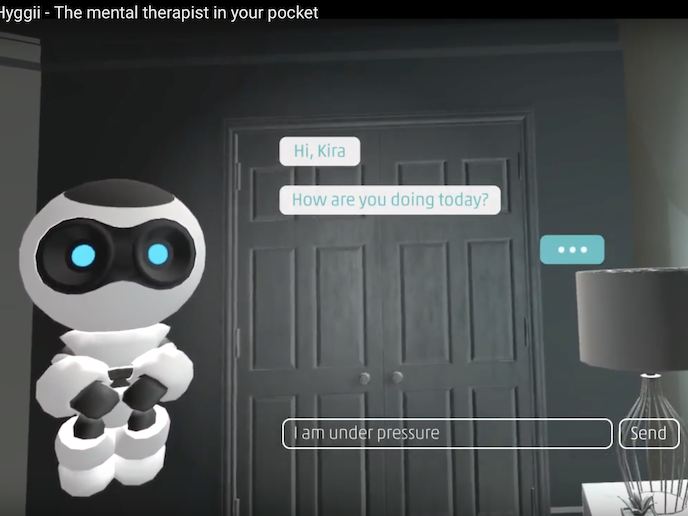‘Therapist in your pocket’ assists with mental well-being
Stressed, depressed, unable to concentrate, or lonely? Mental well-being has become an important issue with some 200 million people in Europe affected by a mental problem or disorder. Over 40 % of mental disorders remain untreated and over half of all cases are misdiagnosed. Now an EU-funded team has used years of expertise with psychiatrists and psychologists to bring apps and mental treatments onto an innovative mental health(opens in new window) ecosystem platform that can be accessed via a smartphone and can respond to individual needs. “It’s a mobile phone app that integrates a variety of programmes to help people with mental disorders. It helps them not to get mentally sick and so cause costs to the healthcare system – it can sometimes take 5-6 months before they get access to a therapist,” explains HYGGii project coordinator Andrea Degen, CEO of the Institute for Mental Health, Zurich, Switzerland. “It does not replace face-to-face therapy. We work in the preventative sector for early detection when people are asking themselves ‘what’s wrong with me?’ and also to prevent remission,” she adds. The system designs a personal mental treatment plan and suggests therapeutic games carefully chosen by professional therapists.
Online tools that therapists can access
“There are about 300 000 mental health apps on the market – some cool ones and others that lack clinical evidence. We went through them to build an evidence-based ecosystem so that therapists can access current knowledge and digitalised therapeutic tools,” Degen explains. “We tested all kinds of software, tools, equipment and apps such as virtual reality therapy to treat anxiety, neurofeedback and therapeutic games and brought them onto our platform,” she says. Some were available freely on the market, others required agreements to bring them onto the platform and some were developed by the project team to fill gaps. It is constantly evolving as new tools and apps become available. “It’s as if the therapist’s couch is connected to many tools that can be accessed remotely,” Degen adds. “Some of these gadgets, such as virtual reality for treating anxiety, are quite costly for the therapist and we can provide access to them.”
A ‘friend’ in need
The project also built the HYGGii chatbot as a smartphone app, which Degen describes as the psychotherapist and coach “in your pocket”. “It is for people with mental disorders to access before they can see a therapist, when they are in remission and it is important to get daily reminders,” Degen says. HYGGii is powered by a proprietary artificial intelligence (AI) engine known as Leonarda which uses language analysis, voice intelligence and face recognition to understand written and audio phrases and expressions in several European languages. Patients type in their messages, similar to an online chat. “We get information from the patient through the chatbot. But often they don’t talk about their feelings – the first problem they usually express is not the problem they are suffering from,” says Degen. “We work with them in a safe and playful way. HYGGii has a sense of humour, sometimes just talking about the weather or something that is not really the issue but helps to build the relationship.” Patients prefer it to talking face to face with a therapist, often because they feel ashamed. “There is this stigma with mental disorders,” Degen notes. The AI algorithms are designed to triage people into different mental disorders based on symptoms that become apparent during the chat. Then HYGGii connects them to a variety of evidence-based therapeutic games and exercises that can help prevent a slide into mental illness.







